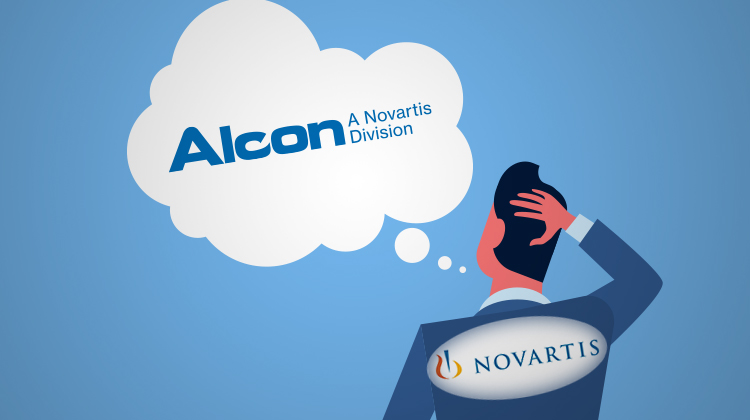As Novartis Ponders Alcon’s Sale, Who Is Best Owner?

So when does a rumor cease being a rumor and become a reality? It remains to be seen whether all the recent and persistent rumors about Novartis selling Alcon will come to fruition, but they received a big credibility boost when its chairman, Joerg Reinhardt, said in an interview recently that “in the long run, the question arises as to whether we are the best owner for Alcon.”
That raises another question: If Novartis is not the best owner for Alcon, who is?
Interviewed in the Swiss weekly SonntagsZeitung Reinhardt said, “Alcon has not developed over the past two years as we had expected . . . all options are open in the future.” Reuters ran with the headline, “Alcon chairman says considering sale of Alcon eye care division.”
Novartis has been trying to reverse disappointing results at Alcon for about a year now. In January, Novartis replaced then-CEO Jeff George with Mike Ball after Alcon’s fourth-quarter 2015 sales plummeted 13%. At the time, Alcon’s ophthalmic drug unit shifted over to Novartis’ pharmaceutical division, leaving Alcon to focus on surgical equipment and vision care, including contact lenses.
What are Novartis’ options with Alcon? Based on estimated annual revenue of $5.5 to $6 billion for the surgical and vision care operations, it might take $15 billion or more to close this deal. At that price, the list of potential buyers is very slim.
A likely candidate may be Allergan, which owned AMO prior to its spin-off in mid-2002.
Reliable industry sources have indicated that Allergan recently tried aggressively to buy AMO, but was outbid by Johnson & Johnson. Allergan already is a big player in eye care with annual sales of about $2.5 billion and its CEO & President, Brent Saunders, formerly was the CEO of Bausch & Lomb.
A “dark horse” may be Medtronic, a widely diversified medical device company with about $30 billion in annual revenue, but with not much of a footprint in ophthalmology. It has oft been rumored to want to make a big ophthalmic acquisition, but its balance sheet seems stretched, with $30 billion in long-term debt.
A third possibility is a leveraged buyout (LBO) by a large private equity firm, like Kohlberg Kravis & Roberts, which just invested $66 million in the corneal inlay/intraocular lens (IOL) company AcuFocus. Another potential player is Warburg Pincus, which showed its affinity for ophthalmic deals when it did a $4.5 billion LBO of Bausch & Lomb in late 2007.
Finally, another option would be to divest Alcon in a staged transaction, selling part of the company in an initial public offering and then eventually divesting the rest to its shareholders. Nestle, Alcon’s previous owner, pursued a similar path well over a decade ago.
Novartis acquired Alcon in a multi-year series of transactions for about $51 billion, with the final tranche occurring in December 2010. For the year 2010, Alcon generated global revenue of $7.2 billion and was enormously profitable, with a pre-tax profit margin of 35%. After growing nicely in 2011 to 2014, Alcon has struggled in 2015 and 2016 with declining sales and profitability.
At its annual analyst meeting in January 2016, Novartis management blamed Alcon’s recent disappointing performance on “a failure to innovate, inconsistent customer service and underdeveloped capabilities in operations and systems.”
